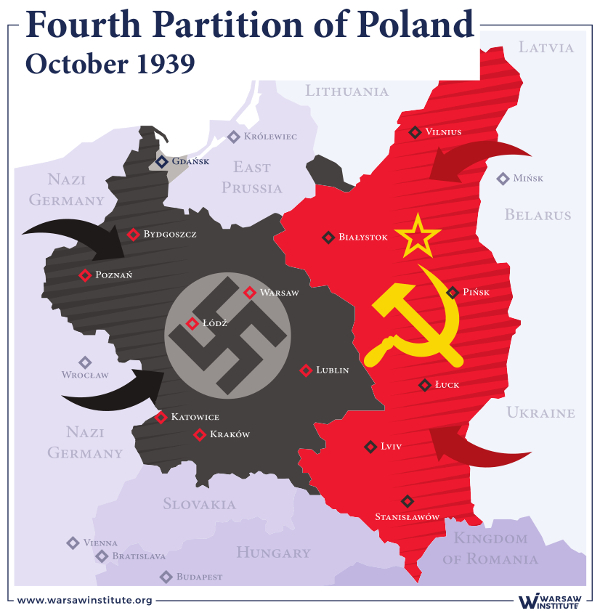- Policies. The humiliating conditions of the Treaty of Versailles made it easier for Hitler's totalitarian ideas to be accepted by a large part of the German people and to give him his confidence in the elections to Parliament. Once installed in power, Hitler sought allies in Europe. In October 1936 it signed with Italy the pact Berlin-Rome, to which Japan joined in November of the same year. In May 1939 it signed the Pact of Steel with Italy. In August of the same year, the German-Soviet pact, was signed, which secured the Soviet neutrality in the invasion of Poland. The agreement had a secret part: the distribution between the two countries of Poland and the Baltic States, with the exception of Lithuania, Finland and Bessarabia. This pact showed the imperialist ideas of totalitarian regimes: two antagonistic systems, one communist and another anti-communist, agreed to broaden their borders at the expense of a third country: Poland.

- Economic. By the Treaty of Versailles, Germany was obliged to pay a strong economic compensation to the winning countries in the concept of war reparations, which prevented its recovery and plunged into a serious economic crisis, with a high rate of unemployment and continuous social and political conflicts. An economic situation that was worsened by the development of the 1929 crisis.
- Territorial. In March 1936, Germany rearmed the Rhineland, a zone considered as a demilitarised zone by the Versailles Treaty after the First World War, and built a defensive line: the Siegfried Line. The European democracies and the Society of Nations consented to the German provocations and did not sanction in time Hitler's actions, which did not respect the agreements of the Treaty of Versailles. Hitler was completely determined to restore the old territory of Germany, and began to convert his native Austria into a German province by annexation (Anschluss) in 1938, a few years after the assassination of Austrian Chancellor Dollfuss for a Nazi command. In October of the same year he occupied the Sudeten, alleging that in that Czech region more than three million Germans lived. France and Britain accepted this occupation at the Munich Conference, believing that this would stop the German expansionist cravings. In March 1939 he occupied the rest of Czechoslovakia and proclaimed the protectorate of Bohemia-Moravia. Slovakia became independent, to request the protection of the third Reich immediately. The pretension to annex the city of Dantzig and to unite by road and railroad the two parts of Prussia led to enter a dispute with Poland, which motivated the invasion of Poland on September 1, 1939, Germany invaded Poland. German troops. On September 3, the British and French governments confronted German to suspend the attack and, in the negative, both countries declared war on Germany


